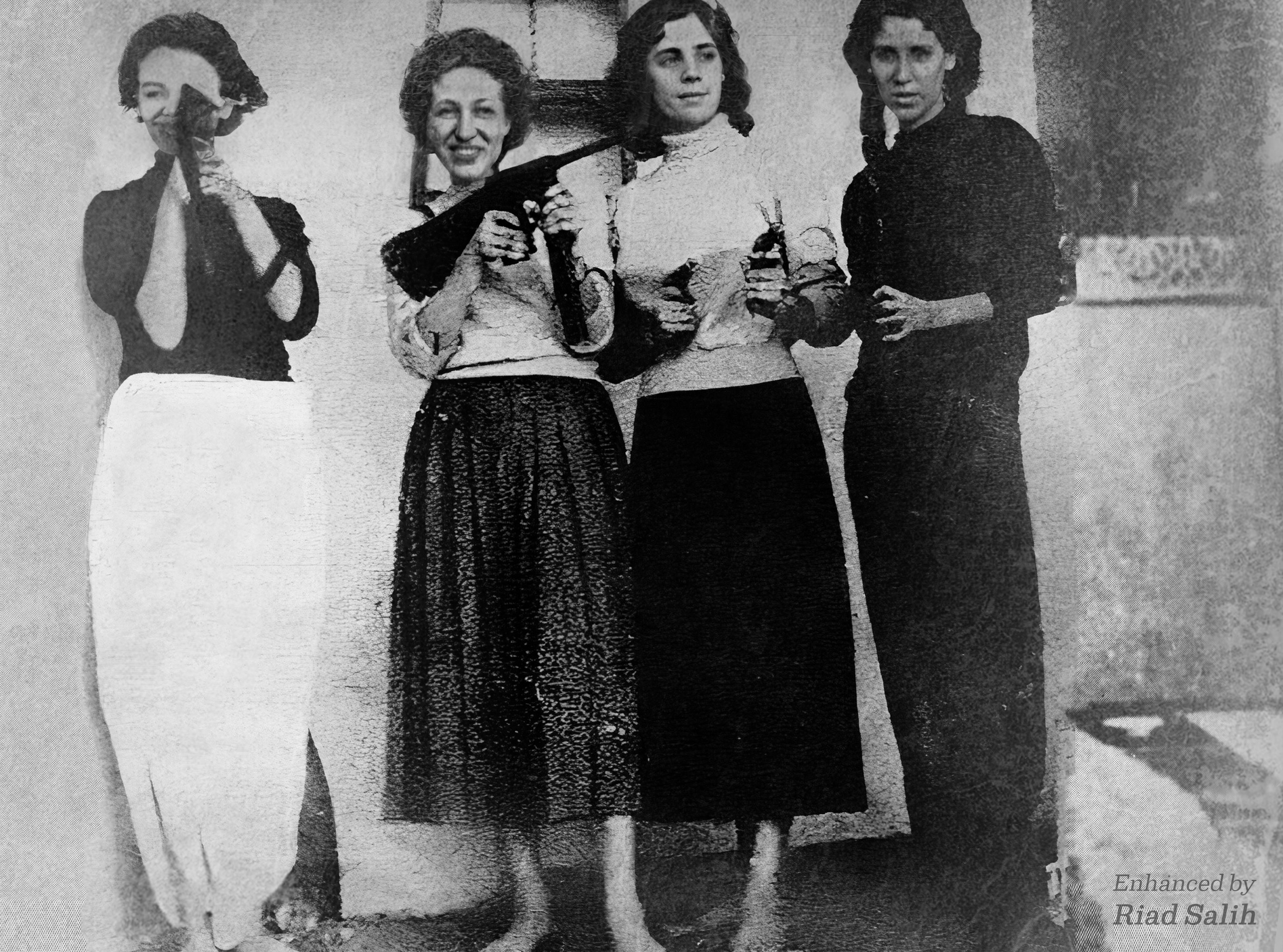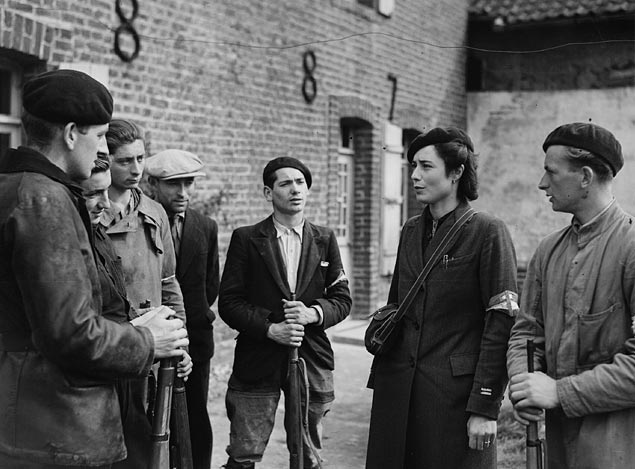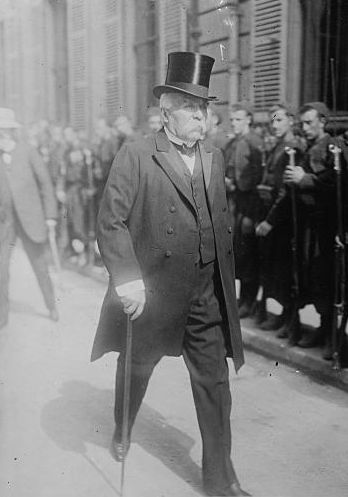|
Zohra Drif
Zohra Drif Bitat (, born 28 December 1934) is a retired Algerian lawyer, moudjahid (a militant of the Algerian War of Independence), and the vice-president of the Council of the Nation, the upper house of the Algerian Parliament. Drif was born in Tissemselt, Algeria, part of the province of Tiaret, where her grandfather was an imam and her father served as a lawyer and judge in Tiaret. She is best known for her activities on behalf of the National Liberation Front (FLN) during the Algerian War of Independence. Drif was married to Rabah Bitat, one of the heads of the FLN and president of the National Assembly. In Algeria, she is considered a heroine in the Algerian War of Independence against French colonisation. She was a part of the FLN's bomb network and during the Algerian War of Independence, she worked with Ali La Pointe, Hassiba Ben Bouali, and Yacef Saâdi, head of the Autonomous Zone of Algiers. Her time in the war is most known in connection with the Milk Bar ... [...More Info...] [...Related Items...] OR: [Wikipedia] [Google] [Baidu] |
Tissemsilt
Tissemsilt () is a municipality in Algeria. It is the capital of Tissemsilt Province and Tissemsilt District Tissemsilt is a district in Tissemsilt Province, Algeria. It was named after its capital, Tissemsilt, which is also the capital of the province. Municipalities The district is further divided into 2 municipalities A municipality is usually a .... External links * Communes of Tissemsilt Province Province seats of Algeria Tissemsilt Province {{Tissemsilt-geo-stub ... [...More Info...] [...Related Items...] OR: [Wikipedia] [Google] [Baidu] |
Saadi Yacef
Saâdi Yacef (; 20 January 1928 – 10 September 2021) was an Algerian revolutionary, politician and actor. A prominent figure during the Algerian War, he served as a leader of the National Liberation Front. He was a Senator in Algeria's Council of the Nation until his death. Biography Yacef was born in Algiers. He was born in the bustling Casbah district of Algiers on 20 January 1928, to illiterate ethnic Berber parents. His parents spoke Berber rather than French or Arabic. The son of parents from the Algerian region of Kabylia, he started his working life at age of 14 as an apprentice baker. In 1945, at age of 17, he joined the Parti du Peuple Algérien, a nationalist party which the French authorities soon outlawed, after which it was reconstituted as the Mouvement pour le Triomphe des Libertes Democratiques (MTLD). From 1947 to 1949, Yacef served in the MTLD's paramilitary wing, the Organisation Secrete. After the OS was broken up, Yacef moved to France and lived there ... [...More Info...] [...Related Items...] OR: [Wikipedia] [Google] [Baidu] |
Germaine Tillion
Germaine Tillion (30 May 1907 – 18 April 2008) was a French ethnologist, known for her work in Algeria in the 1950s on behalf of the Government of France. A member of the French Resistance in World War II, she spent time in Ravensbrück concentration camp. Biography Tillion was born on May 30, 1907, in Allegre (Haute-Loire) in south-central France. She was the daughter of Lucien Tillion, a magistrate, and Émilie Cussac Tillion. Her mother was also noted as an art historian and a French resistance fighter. She had a sister called Francoise. Germaine Tillion's family belongs to the french bourgeoisie, they are both republicans and catholics. Youth and studies Tillion spent her youth with her family in Clermont-Ferrand. At the age of 8, Germaine Tillion and her sister Françoise Tillion were sent to Jeanne d'Arc Institution, in Clermont-Ferrand. She studied there from primary to secondary school, at the start of World War One. In 1922, her parents moved to Saint-Maur ... [...More Info...] [...Related Items...] OR: [Wikipedia] [Google] [Baidu] |
Jacques Massu
Jacques Émile Massu (; 5 May 1908 – 26 October 2002) was a French general who fought in World War II, the First Indochina War, the Algerian War and the Suez Crisis. He led French troops in the Battle of Algiers, first supporting and later denouncing their use of torture. Early life Jacques Massu was born in Châlons-sur-Marne to a family of military officers; his father was an artillery officer. He studied successively at Saint-Louis de Gonzague in Paris, the Free College of Gien (1919–1925) and Prytanée National Militaire (1926–1928). He then entered Saint-Cyr and graduated in 1930 as a second lieutenant in the promotion class " Marshal Foch" and chose the Colonial Infantry. Between October, 1930 and August, 1931, he served in the 16th Senegalese Tirailleur Regiment (16th RTS) in Cahors. He was sent to Morocco with the 5th RTS and took part in the fighting around Tafilalt where he earned his first citation. He was promoted to lieutenant in October 1932 and took p ... [...More Info...] [...Related Items...] OR: [Wikipedia] [Google] [Baidu] |
Paratroopers
A paratrooper or military parachutist is a soldier trained to conduct military operations by parachuting directly into an area of operations, usually as part of a large airborne forces unit. Traditionally paratroopers fight only as light infantry armed with small arms and light weapons, although some paratroopers can also function as artillerymen or mechanized infantry by utilizing field guns, infantry fighting vehicles and light tanks that are often used in surprise attacks to seize strategic positions behind enemy lines such as airfields, bridges and major roads. Overview Paratroopers jump out of aircraft and use parachutes to land safely on the ground. This is one of the three types of "forced entry" strategic techniques for entering a theater of war; the other two being by land and by water. Their tactical advantage of entering the battlefield from the air is that they can attack areas not directly accessible by other transport. The ability of airborne assault to ... [...More Info...] [...Related Items...] OR: [Wikipedia] [Google] [Baidu] |
Battle Of Algiers (1956–57)
Battle of Algiers or Algiers expedition may refer to: * Capture of Algiers (1516), during the Ottoman–Habsburg wars * Algiers expedition (1516), during the Ottoman–Habsburg wars * Algiers expedition (1519), during the Ottoman–Habsburg wars * Capture of Peñón of Algiers (1529), during the Ottoman–Habsburg wars * Algiers expedition (1541), during the Ottoman–Habsburg wars * Algiers expedition (1567), during the Ottoman-Habsburg wars * Bombardment of Algiers (1682), during the Franco-Algerian war * Bombardment of Algiers (1683), during the Franco-Algerian war * Bombardment of Algiers (1688), during the Franco-Algerian war * Bombardment of Algiers (1770), during the Dano–Algerian War * Invasion of Algiers (1775), during the Spanish–Algerian War * Bombardment of Algiers (1783), during the Spanish–Algerian War * Bombardment of Algiers (1784), during the Spanish–Algerian War * Bombardment of Algiers (1816), during the Barbary slave trade * Invasion of Al ... [...More Info...] [...Related Items...] OR: [Wikipedia] [Google] [Baidu] |
Djamila Bouhired
Djamila Bouhired (, born June 1935) is an Algerian nationalist militant, who opposed the French colonial rule of Algeria as a member of the National Liberation Front. In 1957, she was convicted alongside another Algerian rebel, Djamila Bouazza, of bombing a cafe and killing 11 civilians. She was sentenced to death, but the sentence was commuted after an international campaign for her to be spared, and she was released from prison in 1962. Biography Djamila Bouherid was born into a middle-class family in colonial Algeria. Her brothers were involved with the underground nationalist resistance movement, and Bouhired joined the National Liberation Front (FLN) while a student activist. During the Algerian War, she worked as a liaison agent for FLN commander Saadi Yacef in Algiers. In April 1957, before a large planned demonstration in the Casbah, she was captured by the French and tortured for information. Bouhired maintains that she did not confess to any wrongdoing or reveal ... [...More Info...] [...Related Items...] OR: [Wikipedia] [Google] [Baidu] |
Les Poseuses De Bombes
LES or Les may refer to: People * Les (given name) * Les (surname) * L.E.S. (producer), hip hop producer Space flight * Launch Entry Suit, worn by Space Shuttle crews * Launch escape system, for spacecraft emergencies * Lincoln Experimental Satellite series, 1960s and 1970s Biology and medicine * Lazy eye syndrome, or amblyopia, a disorder in the human optic nerve * The Liverpool epidemic strain of ''Pseudomonas aeruginosa'' * Lower esophageal sphincter * Lupus erythematosus systemicus Places * The Lower East Side neighborhood of Manhattan, New York City * Les, Catalonia, a municipality in Spain * Leş, a village in Nojorid Commune, Bihor County, Romania * ''Les'', the Hungarian name for Leșu Commune, Bistriţa-Năsăud County, Romania * Les, a village in Tejakula district, Buleleng regency, Bali, Indonesia * Lesotho, IOC and UNDP country code * Lès, a word featuring in many French placenames Transport * Leigh-on-Sea railway station, National Rail station code * Leyton ... [...More Info...] [...Related Items...] OR: [Wikipedia] [Google] [Baidu] |
Georges Clemenceau
Georges Benjamin Clemenceau (28 September 1841 – 24 November 1929) was a French statesman who was Prime Minister of France from 1906 to 1909 and again from 1917 until 1920. A physician turned journalist, he played a central role in the politics of the French Third Republic, Third Republic, particularly amid the end of the First World War. He was a key figure of the Independent Radicals, advocating for the separation of church and state, as well as the amnesty of the Communards exiled to New Caledonia. After about 1,400,000 French soldiers were killed between the Schlieffen Plan, German invasion and Armistice of 11 November 1918, Armistice, he demanded a total victory over the German Empire. Clemenceau stood for reparations, a transfer of colonies, strict rules to prevent a rearming process, as well as the restitution of Alsace–Lorraine, which had been annexed to Germany in 1871. He achieved these goals through the Treaty of Versailles signed at the Paris Peace Conferen ... [...More Info...] [...Related Items...] OR: [Wikipedia] [Google] [Baidu] |
Montesquieu
Charles Louis de Secondat, baron de La Brède et de Montesquieu (18 January 168910 February 1755), generally referred to as simply Montesquieu, was a French judge, man of letters, historian, and political philosopher. He is the principal source of the theory of separation of powers, which is implemented in many constitutions throughout the world. He is also known for doing more than any other author to secure the place of the word ''despotism'' in the political lexicon.. His anonymously published '' The Spirit of Law'' (1748), which was received well in both Great Britain and the American colonies, influenced the Founding Fathers of the United States in drafting the U.S. Constitution. Biography Montesquieu was born at the Château de la Brède in southwest France, south of Bordeaux. His father, Jacques de Secondat (1654–1713), was a soldier with a long noble ancestry, including descent from Richard de la Pole, Yorkist claimant to the English crown. His mother, Mari ... [...More Info...] [...Related Items...] OR: [Wikipedia] [Google] [Baidu] |
Danton
Georges Jacques Danton (; ; 26 October 1759 – 5 April 1794) was a leading figure of the French Revolution. A modest and unknown lawyer on the eve of the Revolution, Danton became a famous orator of the Cordeliers Club and was raised to governmental responsibilities as the French Minister of Justice following the fall of the monarchy on the tenth of August 1792, and was allegedly responsible for inciting the September Massacres. He was tasked by the National Convention to intervene in the military conquest of Belgium led by General Dumouriez, and in the spring of 1793 supported the foundation of a Revolutionary Tribunal, becoming the first president of the Committee of Public Safety. During the Insurrection of 31 May – 2 June 1793, Danton changed his mind on the use of force and lost his seat in the committee afterwards, which solidified the rivalry between him and Maximilien Robespierre. In early October 1793, Danton left politics but was urged to return to Paris to plea ... [...More Info...] [...Related Items...] OR: [Wikipedia] [Google] [Baidu] |





